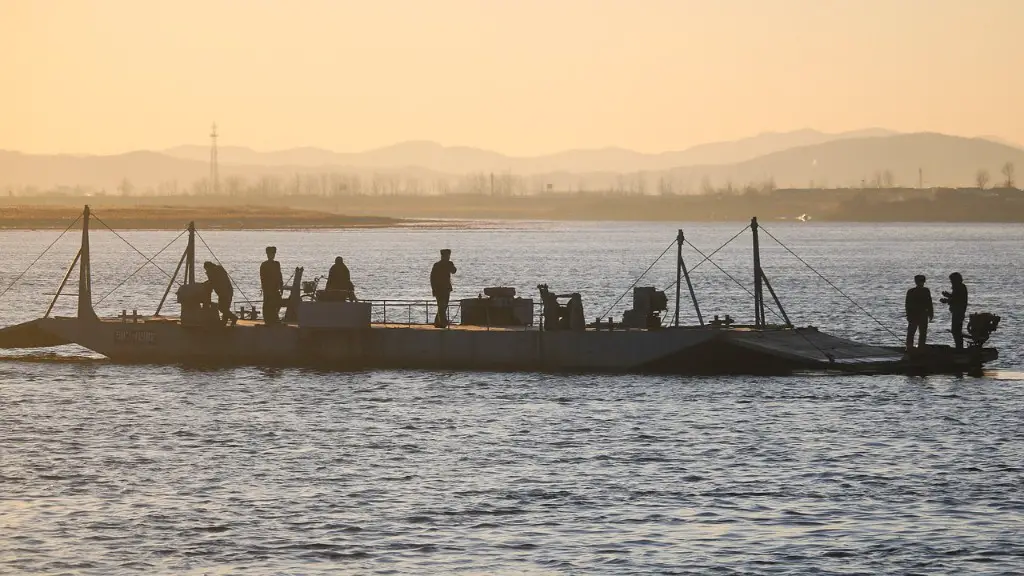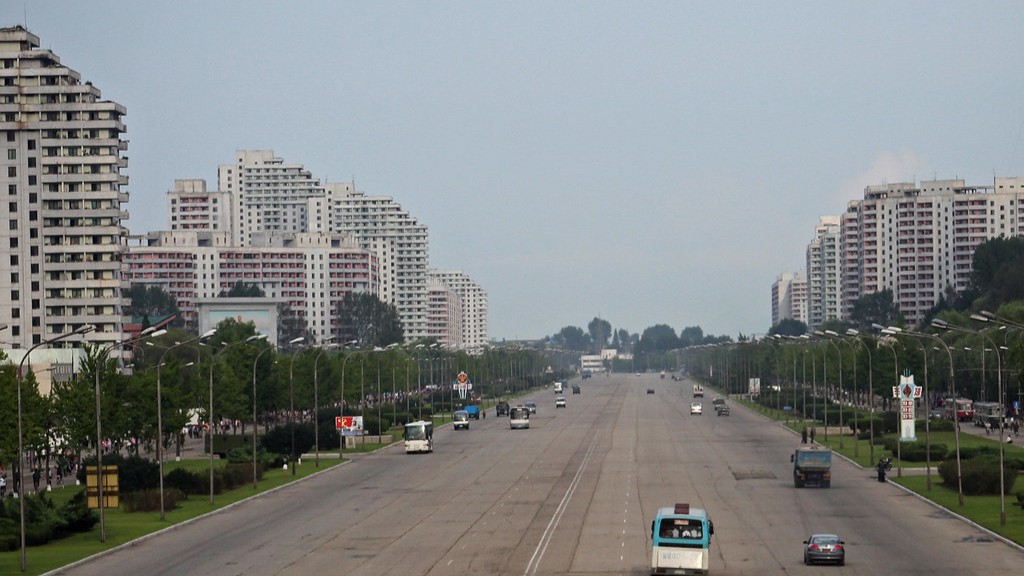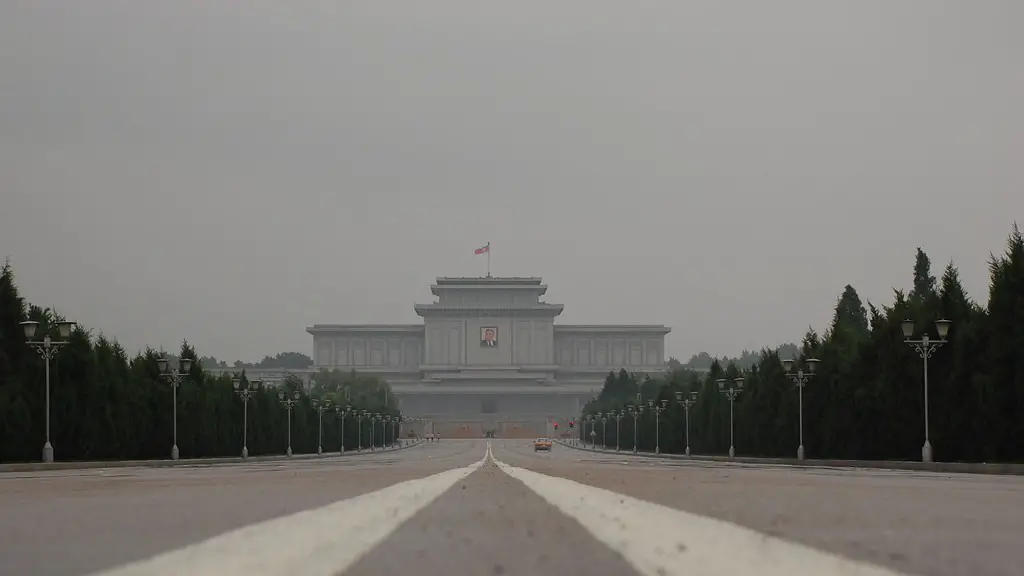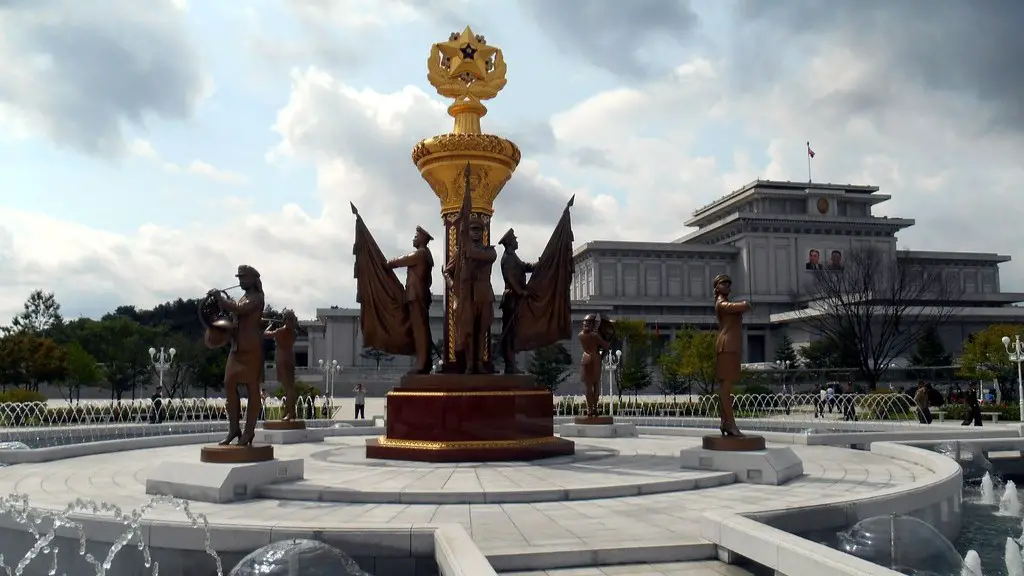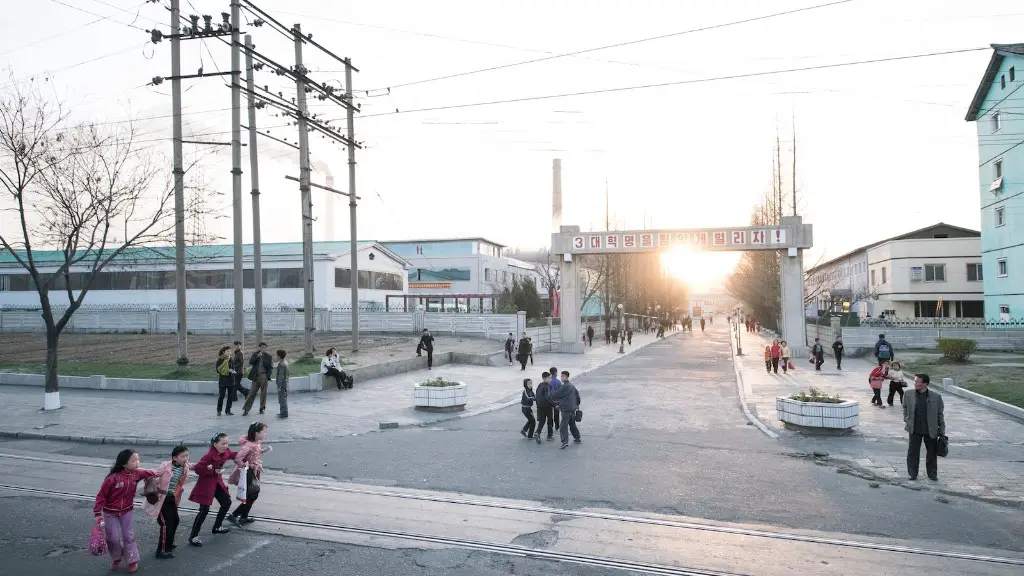“Why Are North Korea And South Korea At War”
The exact reasons why North Korea and South Korea are at war are incredibly complex and disputed. While there is a general consensus that it all started with the division of Korea following World War II, the specifics of the war can be difficult to comprehend. The war between North Korea and South Korea was an international conflict that resulted from the division of Korea by outside powers, stemming from the Cold War between the United States and the Soviet Union.
It all began in 1945 when World War II ended and the victorious Allied Powers divided the Korean Peninsula into two occupational zones, one in the north and one in the south. During this period, the Soviet Union occupied the northern part of Korea and the United States occupied the south. In August of 1945, the United States declared the formation of the Republic of Korea in the southern zone, which was then followed by the establishment of the Democratic People’s Republic of Korea in the northern zone by the Soviet Union in September of the same year.
The division between the two Korean states and the ensuing war was a result of intense ideological rivalry between the United States and the Soviet Union, and the Korean people were left in the middle of a bitter international conflict. In 1950, North Korean forces backed by the Soviets invaded South Korea in an attempt to unify the Korean Peninsula under a communist government. This sparked a three-year conflict, known as the Korean War, between the two sides that resulted in the death of millions of Korean people. Despite a cease-fire being declared in 1953, North and South Korea remain in a technical state of war.
The main sticking points that led to the conflict still remain unresolved. North Korea is adamant that any formal peace treaty requires the removal of U.S. forces from South Korea and the establishment of a new unified, neutral Korean government that is free from foreign interference. South Korea, on the other hand, is unwilling to give up its American alliance and is not in favor of giving up its’ hard-won democracy in favor of a unified, simplified system of government. As a result, North and South Korea have been unable to reach an agreement on the terms of a peace treaty and the war continues to simmer.
Many experts have expressed their opinion on the subject and have highlighted the complex nature of the conflict. Dr. Ramon Pacheco Pardo, an Associate Professor in International Relations at the University of London’s School of Oriental and African Studies, has stated that “In the case of Korea, it is important to understand the complex nature of the conflict and how the perceptions, interests, and motivations of different actors have shaped the current status quo.” Dr. Pacheco Pardo has also argued that “it is critical to understand that the Korean War has not just been an ideological conflict between communist and capitalist forces, but also one of identity and national pride.”
It is clear that the conflict between North Korea and South Korea is deeply entrenched and goes beyond simply economic and ideological differences. To really understand why the two nations are still at war, it is important to look at the Korean War’s historical context and the personal and national pride of both sides.
Development of the Korean Nations
The Korean War was the catalyst for the establishment of two distinct Korean nations, with each side building their own society and culture in the wake of the conflict. As a result, North and South Korea have developed very differently in terms of economics, politics, and culture. North Korea has retained its one-party communist system and its economy remains heavily reliant on foreign aid and the black market. South Korea has embraced democracy and its economy has developed rapidly, with the nation now even being considered one of the world’s leading economies.
The different paths of development adopted by North and South Korea are partially responsible for the continuing conflict between them. North Korean leader Kim Jong Un has heavily emphasized the importance of Korean unity and is wary of South Korea’s close ties to the U.S. and the West. Meanwhile, South Korean politicians have championed democracy and have taken a more hardline stance against North Korea’s nuclear ambitions. It is undeniable that the perceived threats posed by the differing systems of government and the distinct national identities are a major factor in why North Korea and South Korea are still technically at war.
The divergent paths taken by North and South Korea have also been reflected in the large economic gap that has developed. South Korea’s economy has grown tremendously over the years, with its GDP per capita now many times higher than North Korea’s. The economic disparity between the two nations is one of the biggest issues to consider in understanding why North and South Korea remain at war and is a major motivating factor for the North Korean government.
The continued conflict between North and South Korea even after 70 years highlights the complicated and intertwined historical, political, and economic issues between them. The divided Korean Peninsula remains a highly sensitive issue and it is unlikely that a peace treaty will soon be reached.
Arms Race
The Korean War also led to an arms race on the Korean Peninsula that has significantly increased the tension between North and South Korea. In the years since the war, North Korea has been aggressively pursuing a nuclear weapons program, a move that has been met with extreme condemnation by the international community. South Korea has responded by increasing its defense budget and strengthening its military capabilities in an effort to deter the North.
The current crisis between North and South Korea started in 2017, when North Korea conducted its first successful intercontinental ballistic missile test and later conducted additional nuclear tests. In response, the United Nations imposed severe economic sanctions on North Korea and the Trump administration has maintained a policy of isolating North Korea and punishing them for their nuclear ambitions. North Korea has continued to develop and test its weapons in spite of the international sanctions.
The situation on the Korean Peninsula has become increasingly tense and unpredictable in recent years. North Korea has repeatedly threatened to use its nuclear weapons against the United States and its allies, and the Trump administration has talked about the possibility of a “preemptive strike” against North Korea. With both sides building up their arsenals, it is clear that the arms race is a key factor in why North Korea and South Korea are still technically at war.
Regional Politics
The Korean War and its aftermath have also had a significant impact on regional politics, particularly in East Asia. The leaders of both North and South Korea have repeatedly claimed to represent the “legitimate” Korean government and have sought out international recognition as the rightful leader of the Korean Peninsula. This has led to a growing rift between the two sides and a sharp decrease in diplomatic relations with the neighboring countries.
The situation has been further complicated by China’s support for North Korea and its opposition to South Korea. China has consistently stated that it supports North Korea as the legitimate state and has worked to maintain the conflict between North and South Korea. As a result, China has become an obstacle to negotiations between the two sides, which has only exacerbated the tension on the Korean Peninsula.
It is clear that regional politics play an influential role in why North Korea and South Korea are still technically at war. China’s support for North Korea and its opposition to South Korea have been a major roadblock to negotiations and have made it difficult for the two sides to come to an agreement.
International Pressure
International pressure has also been a major factor in why North and South Korea are still at war. The international community has been increasingly vocal in condemning North Korea’s nuclear program and has imposed harsh economic sanctions on the country. Over the years, North Korea has been subject to multiple rounds of sanctions from the United Nations and has been subject to additional sanctions from the United States and other countries.
International pressure has only further escalated tensions between North Korea and South Korea. North Korea has responded to the sanctions with threats of retaliation and has increased its development of nuclear weapons and its military capabilities. It is clear that international pressure has played a major role in why the two countries remain at war and is a significant factor in determining the future of the conflict.
Nuclear Weapons
Nuclear weapons are a major source of tension between North Korea and South Korea and it is clear that they are a major factor in why the two sides remain at war. North Korea’s development of nuclear weapons has been condemned by the international community and has resulted in multiple rounds of U.N. sanctions. North Korea has not backed down from its nuclear ambitions and has, in recent years, continued to develop and test its weapons technology.
The situation on the Korean Peninsula is complicated and remains highly volatile. North Korea’s pursuit of nuclear weapons has raised alarms in South Korea, the United States, and other countries, with many believing that war could break out at any moment. It is clear that the development of nuclear weapons has been a major factor in why North and South Korea remain at war and is a major source of tension between the two sides.
Human Rights Abuses
Human rights abuses have also been a major factor in why North and South Korea have remained technically at war. The human rights situation in North Korea has been consistently criticized by the international community, with the United Nations calling on North Korea to improve its human rights record. North Korea has been accused of systemic human rights abuses such as punishing citizens for political crimes, such as dissenting opinions, and running prison labor camps.
The human rights situation in North Korea has been a major source of tension between North Korea and South Korea. South Korea has been vocal in condemning North Korea’s human rights abuses and has urged the international community to focus on the issue. It is clear that human rights abuses have been a major factor in why the two countries are still at war.
International Reaction
The international community has reacted to the prolonged war between North and South Korea with a mix of condemnation and concern. The United Nations has called on both sides to pursue negotiations and to take steps towards a peaceful resolution of the conflict. The United States and other countries have implemented economic sanctions and other measures in an attempt to pressure North Korea to change its behavior.
However, these efforts have been largely unsuccessful. North Korea has continued to develop and test its nuclear weapons and has remained defiant in the face of international pressure. It is clear that the actions of the international community have had limited success in resolving the conflict between North and South Korea.
Peace Talks
In recent years, North and South Korea have taken steps towards peace, with three major inter-Korean summits being held between the two sides. The summits have resulted in a number of agreements, such as a non-aggression pact, the joint development of a peace zone on the Korean Peninsula, and the establishment of a joint liaison office in Kaesong.
These agreements have been met with cautious optimism by the international community, however, it is unclear if they will lead to a lasting peace. North Korea has remained defiant in the face of international pressure and has continued to develop its nuclear weapons program. It is clear that the prospects of peace on the Korean Peninsula remain uncertain
